December 4, 2006 M #
Every once in a while I forget where I am. Then I get an email for a presentation with this kind of title, and I'm abruptly reminded:
"Solutions of Discontinuous Galerkin Discretization of the Navier-Stokes equations using linear multigrid"
Usually I understand the technical lingo, but not this time. I've heard those words before, but don't have the slightest recollection of their meaning.
We had our first Astropreneur team win $1000 in the MIT Soldier Design Competition!!! With the success, I decided to calculate our ROI, arbitrarily valuing club meetings at $200, and officers meetings at $100. That gives us a summation of $1000/(9*$200 + 6*$100) = $1000 / $2400 = .42!!!
I expressed my excitement actually having a concrete ROI of .42, and what was the first comment I heard in response?
"Dork."
It makes me wonder why I have friends :)
|
December 5, 2006 T #
WorldCom Accounting
Today we did the same WorldCom case in Accounting that they did when I visited HBS last year. I've had my praises for the case intensive methods of HBS, but it was interesting to see the differences between what I recalled of this case at HBS and what we did here at MIT Sloan. Our courses are much more quantitatively based during this first semester at MIT Sloan. As a result, we were able to walk through a much more rigorous analysis of exactly what they did wrong at WorldCom. WorldCom progressed from some gray area accounting judgment, to heavily bending the GAAP rules for certain accounts, and then finally reverting to outright fraud... and we had the technical understanding of accounting to see exactly how they started this rule bending, and how it affected the reported performance.
As I recall from HBS, they lightly mentioned which accounts were adjusted, drew up some account entries on the board, and I recall the professor saying "Any more detail isn't important for what you'll be doing as managers, but any accountant would recognize it was outright fraud." Now having the accounting understanding grafted into our brains, I'm really glad that we sacrificed a few cases to really understand the mechanics.
In today's post Enron, post WorldCom business environment, where Executives sign their names to the legitimacy of their financial reports, it seems highly risky to not have a more functional understanding of the use of different accounts, and where the money in your company is flowing. Ebbers trusted Sullivan to legally run WorldCom's finances. Ebbers knew he was pressuring Sullivan to really bend the rules a long way, but I really doubt if Ebbers had the financial understanding to recognize how Sullivan was bending (and breaking) those rules. Ignorance is no excuse, and a marginal concern for legality by Ebbers could have prevented the fraud, but I do think it is the responsibility of every CEO to have more than a cursory understanding of how accounting works.
In a nutshell, I'm glad to have the more technical level of accounting training we get at MIT Sloan. Next semester I'll take a course on Managerial Accounting, which will be much more of a strategic HBS style use of accounting, but I'm glad we hashed out the mechanics this first semester.
|
December 12, 2006 T #
Leaders and Associates #
"Leadership is influencing the people around you to do the things that are most important in their individual lives right now."

(Pictures from our South East Asia C-Function)
Yesterday I listened to Steve Ballmer speak, CEO of Microsoft, brought out to HBS by the MIT Tech Club, and the HBS equivalent tech club. It was great to see the way Steve swanked out onto stage, full of energy, happy, lanky, and totally unconcerned to be a big shot on stage. I was thoroughly impressed with the flow of his half hour speech. Always at the front of the stage, moving from one side of the audience to the other, never looking at the notes he left alone at the vacant podium. His speech was architected such that everything flowed naturally from one point to the next. It was well practiced, though it flowed very naturally and almost stream of conscious. He has excellent energy.
Steve was a Harvard Undergrad and a Stanford Business School dropout (after 1 year). He spent some time with Proctor and Gamble in between the schools, leaving Stanford to work for Microsoft as the 30th employee of the company. During the hour Q & A session, one of the students asked if Steve thinks he would have been successful at another company. Steve mentioned his ability with numbers was important, but emphasized passion as important, and especially being able to guide the engineers in the direction the engineers wanted to go, such that things got done profitably.

Reflecting on that presentation, along with several peripheral conversations, led to the definition opening this post. Managers frequently speak of getting "the right person" to do what you need done. That's an excellent theory, but reality hits pretty hard when you find people aren't things you can go shopping for or design and manufacture. With enough money you can get "the right tool" for the job, but people aren't tools (unless you ask girls about some of their x-boyfriends). We can only choose from the people that are presently existent on this planet. In larger corporations, we generally choose from the available people within the company. As a smaller organization, you can only choose from the people you can recruit. Because of the nature of people and our organizations, seldom can you match a task to "the right person."
This is where the importance of "leadership" comes into play. Positioning people according to their intrinsic strengths and interests is of the highest importance, but leadership is something more. After you get the most appropriate people you can, and position them according to their intrinsic nature and necessary roles, leadership is what serves to make them the right person, and the right team. This has become a worthwhile context for me to think of things.

"Leadership is influencing the people around you to do the things that are most important in their individual lives right now."
First, let my clarify that I am speaking of comprehensive, ethical and sustainable leadership. The only leadership I am interested in promoting is that which leads everyone at all levels of an organization to live lives that are fulfilling to themselves, and considerate to all other people. Furthermore, this is leadership which flows up, down, sideways, and outside an organization, regardless of position. With this in mind, there is value in looking at why the definition is constructed as it is.

"Leadership is influencing the people around you to do the things that are most important in their individual lives right now."
"Influence," as opposed command, control, or direct, is fundamentally essential because of the moral imperative for agency and voluntary action. Any claim to ethical leadership becomes null and void as soon as individual agency is eliminated from the interaction.
"Influence," in the operational sense, is key because it allows the benefit of individual intelligence that each person brings to a cooperative group. A leader looses the full benefit of cooperation if they simply have others execute their commands. Intelligence is most effectively applied as each individual decides, based on their judgment, what is most important for them to be doing, and what is the best way to do it (within their sphere of responsibility).
An effective leader will empower those with decision (and execution) authority with the understanding necessary for them to apply their own judgment to best contribute to the organizations' objectives. This implies that a manager will appropriately inform subordinates of the strategic objectives and operations of the company. It also implies that a subordinate will appropriately inform a manager of what they need to understand to make optimal strategic and operational decisions. In these interactions, leadership from both individuals is beneficial, regardless of the managerial structure. Each individual influences the decisions of the other.
"Influence" is the component that allows leadership to travel both up and down through an organization, as well as horizontally, and externally. Management intrinsically operates in a somewhat fixed hierarchy from the top down, whereas leadership occurs from the positive influence of one individual upon another (often, leadership is reciprocated between individuals). Through influence, a leader can lead from a managerial position, from beneath a managerial position, or from outside an organization all together.
Management flows from organizational structures.
Leadership flows from individuals.
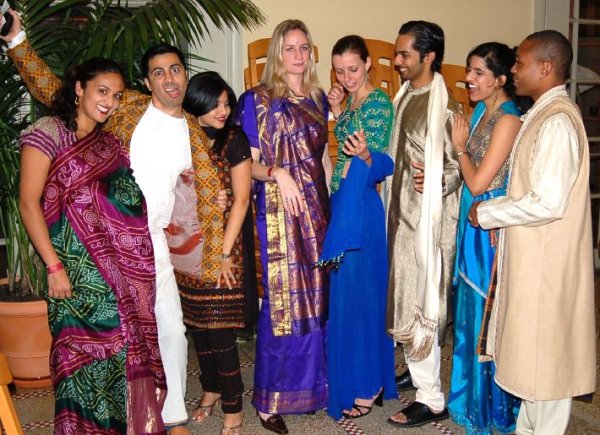
"Leadership is influencing the people around you to do the things that are most important in their individual lives right now."
"The people around you" is the chosen phrasing because it is all encompassing of whatever your circumstances may be. When I return to Northrop Grumman, at some point I will probably be given people to manage (not of my choosing) toward an objective. When I need to hire people, I will have the recruits available through traditional channels and my networks. Here at MIT, I cannot hire, but I have my fellow students, and it is beneficial for me to organize them to get the most important things done. This has become particularly significant here at MIT because I'm surrounded by more brilliant and driven people than I will ever be again, and yet, nobody is a stereotypical "right person" for many things that need to be done. Even here, people are obviously not tools. They each have their own desires and abilities, and they work accordingly.

"Leadership is influencing the people around you to do the things that are most important in their individual lives right now."
Execution. To accomplish any objective, there are many things "to do." whether it be strategic design or raw implementation, plans and desires must be made concrete or they become nothing more than an intellectual exercise or wistful musing.
In the coordinator / facilitator / manager / leader role, it is important to see the "most important" things that need to be done, and then to communicate what those things are to the people in your organization. You must communicate what is important, why it is important, and then enable them to act on that importance.
There are many important things that can be done. As life goes, some things have to be left undone. The greatest value will arise from doing the "most important" things.
Keep in mind that "most important" is used here in the comprehensive sense. Most important doesn't mean what "seems" most important, but what ultimately "is" most important to the individuals' total fulfillment in life. This only emphasizes why each individual must have a well rounded understanding of themselves, their desires, and their objectives. All our actions are more or less valuable to different objectives. You must first know your objectives in order to judge the extent to which any action will help you achieve those objectives (what you want to experience, what you want to accomplish, etc).

"Leadership is influencing the people around you to do the things that are most important in their individual lives right now."
Influencing people to do what is most important in their "individual lives" is the element that most people have initially thought to be inconsistent with our traditional understanding of leadership. However, when considering leadership with the requirements of being ethical and sustainable, it becomes apparent that leadership must focus on the priorities of each individual. It only takes a little glimpse of the larger picture to understand why this is so essential.
All interaction is and ought to be voluntary. In that interaction, it is morally most correct for each person to live according to their own comprehensive desires. It is demeaning for a leader to imply that their own desires are more important or more valuable than those of others. We each live, experience, and are responsible for our own lives. Each individual deriving motivation from their own desires can share desires, and coordinate their activities toward those ends. Individual desires become aligned through voluntary cooperation, but their actions are still all based on their own, personal, individual desires.
In a large organization, a typical leader is supposed to energize those around them to work on whatever the corporate agenda is. say, making a better diaper for three cents less. The leaders of the American Revolution influenced the people around them to fight against the strongest military power in the world. There is certainly an element of salesmanship involved in these leadership scenarios, but salesmanship is only a subset of leadership. Washington was not much of a salesman, but he was a tremendous leader. Jefferson and Madison were both stellar salesman (of the revolution), and salesmanship was one of their strongest abilities.
Leadership is about communicating priorities, and the means to achieve those priorities. As part of a corporation selling diapers, doing what it takes to produce a better diaper at three cents less is the highest priority of everyone in the company. Why? Because producing inexpensive quality diapers is what they do for the world to earn their living. The highest priorities of everyone in that company really are their families, their friends, the experiences they want from life, etc. Making inexpensive quality diapers is their means toward those ends of higher priority. While little Johnny and Jennifer are safe and learning at school, the highest priority in that parents individual life then becomes making a better less expensive diaper. An effective leader will influence them to work toward that (enabling) highest priority. (I'll just introduce the comparison, but we have ultimate priorities, and enabling priorities.)
The leaders of the American Revolution communicated what life could be like without the rule of the British. It is important to recognize that they first attempted to communicate what life could be, and how it could be better, under the rule of the British. They didn't manipulate people to make them followers of their own priorities; they generated understanding in others, such that they joined the revolution, becoming leaders themselves, and associates (not followers) in the revolution. Each individual was working (and fighting when it came to that) for their own individual most important priorities.
We hear a lot of talk about work-life-balance. An effective leader, by influencing those around them to do what is most important in their lives, will influence them to live that balance. A truly effective leader will influence each individual to recognize their "most important" priorities, and to work toward attaining those priorities.
"Right now" wraps it all up because of the sequencing of life. Other priorities may be ultimately more important, but now may not the time to execute on those things. The only time in which we can act is right now. When the future becomes right now, we can then act in that time span, but we cannot act until the future becomes "right now", and we cannot act on that time slot after is has been "right now". For priorities where we cannot benefit by applying our efforts "right now", it becomes more important to act on the highest priority for which you can progress "right now."
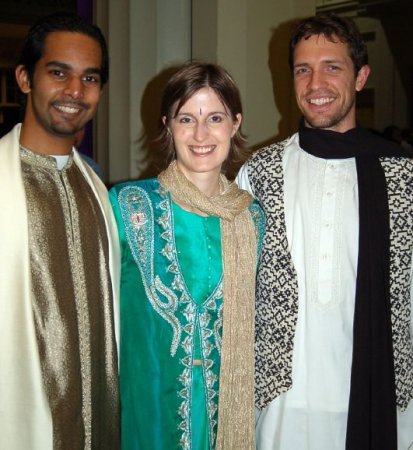
Leaders and Associates
I think it is particularly valuable to move beyond the paradigm of "Leaders and Followers," and shift to the paradigm of "Leaders and Associates."
Followers don't add intelligent value to an organization. They're enablers, but an organization filled with followers is limited to the mental capacity of the leader, that leader's ability to communicate, and the followers' ability to understand and execute the directives.
The "leaders and followers" paradigm also implies a hierarchy of importance of levels of individuals. A leader is far more valuable (to an organization), than a follower. however, a manager and an assembly worker are both crucial to comprehensive organizational success, and both can "influence the people around them to do the things that are most important in their individual lives right now". Both can be leaders; they interact as associates.
Associates are of greater value within an organization. Associates in some roles are easier to replace with equally productive associates, so there will always be differences in compensation for different roles, but the value of a leader in any role is far greater than the value of a follower in that same role.
Followers give nothing back to their leaders. Associates influence other associates to live their lives better. No matter what the compensation differences or organizational hierarchy, leaders all interact as associates; they mutually influence each other toward greater lives.
I have heard technicians at Northrop Grumman (and elsewhere) say "all these years they were paying for my hands, when they could have also had my mind for free." This is the complaint that arises when leaders / associates are structured to be followers. the intelligence and value dormant in their minds is discarded. When we enable individuals to be leaders within their roles, the value they bring to the company is far greater than if we create barriers to their influence.
I don't want any followers with me on my way to the Moon. I want friends and associates with me. I want to live my life with people who influence me to live my life better. in all levels of the organizations I work with. In the Astropreneurs Club, we don't have any followers; we have leaders. Everyone takes their roles as associates, and we all influence each other to live our lives better.

|
December 12, 2006 T #
"Can we stop by the lab after dinner? I think I left my DNA on the counter."

Justin came up over Thanksgiving and we built a deck on my roof.
|
December 14, 2006 R #
To Change the World
- Control, Influence, and Improvement
- 'Your' World and 'The' World

Many people I've recently been associating with have high ambitions to live their lives to change the world. This desire is generally the result of attributes that I value, but an objective so vague as to "change the world" is a vain ambition. First of all, the world is going to change whether anybody tries to change it or not. We cannot stop change, so it naturally follows that creating change is like creating wind. the wind will blow anyway, and any wind we personally create will quickly dissipate into the greater weather system. But put in this context, it becomes clear that to simply "change the world" is not what these people of noble ambition are after.
More accurately, people who are out to 'Change' the world are really out after a combination of three other objectives; to 'Control' the world, to 'Influence' the world, and to 'Improve' the world. For purposes of measurement, we can represent these on a three axis space: Influence and Control on the X and Y axis's respectively, and Improvement on the Z axis.
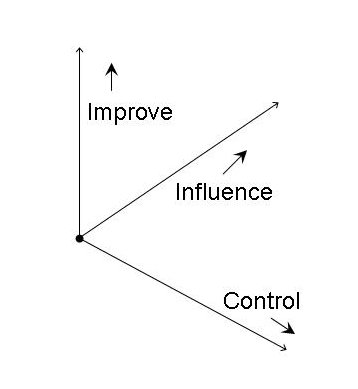
"Control" comes through resources (money, materials, etc.), mechanisms of technology, knowledge of things, people and organizations, as well as organizational and business mechanisms. To 'Control' the world (to differing degrees) is necessary for everything from basic survival, to extended coordinated control. At the most basic level, we must have enough control over the world so that we can produce the things we need to survive: food, clothing, shelter, etc. The more extreme (and more interesting) aspect in this context is that of extended coordinated control of the world, which comes through human organizations.
"Influence" comes through people interacting by their own volition. Al Gore lost the presidential elections in 2000, and wasn't given political 'Control' to improve the world as he saw necessary. However, he has continued to 'Influence' the world through his notoriety. People recognize who Al Gore is, and give his opinions varying levels of credibility. While Al Gore has no formal 'Control' in the environmental policies of the United States, he uses what 'Influence' he has to exert power in shaping the world.
"Improving" the world, as we are evaluating here, is in terms of intentions, not results. Results are what ultimately matter, but it is the intentions by which we judge individual motivations. When speaking in terms of intentions, as we are here, it must be acknowledged that some people have constructive intentions, even though the results of their actions may turn to vast unintended destruction. When Karl Marx wrote the Communist Manifesto, he never intended that Stalin would leverage Marx's ideal as a reason to slaughter millions of people. Marx had the intention of Improving the world, but wound up influencing somebody who exerted unprecedented Control over the world to widespread destruction.
This also illustrates that 'Improving' the world is best accomplished through voluntary inclusion of offered improvements. An entrepreneur can offer some gadget or service that they believe is a tremendous improvement to the world, but only with the consumers of the world agreeing that it really is such an improvement to their own world will it create any widespread improvement in the world at large. It seems history has shown that the best method of managing intended improvements to actually become real improvements (instead of destructive changes) is through voluntary adoption of those affected, not through coerced adoption.
We can exert 'Control' in the world (intending improvement) through technological development and distribution (Bill Gates), military force (Winston Churchill), allocation of money (J.P. Morgan), business creation (Henry Ford). We can give other people access to greater 'Control' in the world through scientific development (Isaac Newton), generating and sharing understanding (Adam Smith), etc. In this respect, Knowledge brings Control. We can exert 'Influence' in the world through consultation (Edward Deming with Toyota), illustration of a moral ideal (Ayn Rand), biasing news stories (Dan Rather), reporting important information (the ideal news reporter) and countless other avenues. Naturally, 'Control' and 'Influence' combine to generate the nature and extent of any individual's 'Power' in 'Their Own' world as well as 'The' world (Power is the cumulative effect of an individuals' Control and Influence. In the diagram, Power = Control x Influence, or is the surface area on the bottom plane.).
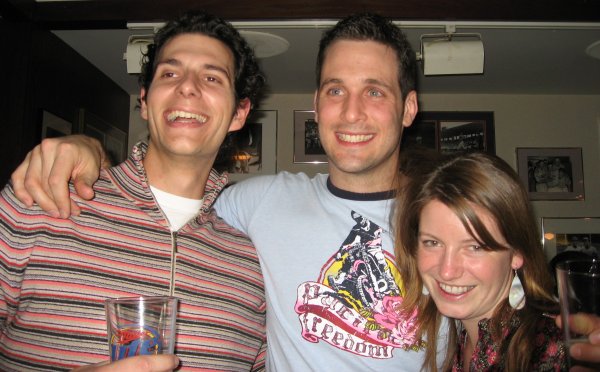
The people I admire and value are those who mean 'Improving' the world when they speak of 'Changing' the world, with Influence and Control as necessary empowerments to create Improvement. Their individual impact on the scale of improvement is the real metric they wish to maximize. Some people loose sight of their objective to Improve, becoming fixated on Influence and Control, or Change for Change's sake, and that action is disappointing, unfulfilling, and can even be destructive. But even in the sincere objective of Improvement, we find a significant point of error where efforts become susceptible to misdirection.
The aspect we need consider is to differentiate between 'The' world, and 'Your' world.
'The' world is everyone and everything you are aware of through second hand sources. For example, to that large majority of Americans, everyone and everything in Africa is part of 'The' world; very few Americans have family or business dealings in Africa, and only learn of happenings indirectly through the News.
'Your' world is everyone and everything you interact with directly and indirectly through a few layers of association. For example, everyone in the company you work for is part of 'Your' world. As a middle manager, your direct co-workers are certainly part of 'Your' world, and since you are only a few association levels away from the executives and line workers in your company, they are also part of 'Your' world. Since your lives all impact each other relatively more significantly than the actions of people in other companies, you are all part of each others personal worlds. It goes without saying that there are degrees of separation between 'The' world and 'Your' world, and philosophically we're all part of a global community, but the difference defined is substantial enough to use as a broad characterization.

Seeking to improve 'The' world is reaching into an unassociated system, believing that your efforts will somehow improve its operation. This is reaching into the lives of people unassociated with yourself, having circumstances, needs, and values that are not necessarily parallel to your own (and certainly not understood by you). Sure, if you throw money or resources their way, it may do some good, but it will be largely ineffectual compared to an intelligent effort. This is the discretion Bill and Melinda Gates take in their humanitarian efforts. By running their foundation with the same rigor of a business they have made some significant improvements in the lives of people unassociated with themselves.
The Gates Foundation improves 'The' world by giving resources to people who make it their business to improve both 'The' world as well as 'Their Own' world (i.e. 'Your' world, in their frame of reference). The Gates Foundation improves the world by enabling people to Control the world (through funding). The enablers in this interaction, who solicit the funds from the Gates Foundation for their personal humanitarian objectives, improve the world through Influence; they develop appropriate Influence to be granted sufficient Control to implement their Improvements. This generally has very positive results, and is fulfilling for all people involved, the original givers (Gates), the enablers (Funding Recipients), and the final recipients of the good will (recipients of medical assistance, improvement, breakthroughs, etc).
The Gates Foundation works to improve 'The' world through giving Control to those who seek it through generating appropriate Influence.
(Just as a matter of principle, I need to inject that the only reason Bill Gates has the Control (resources) and Influence (credibility) substantial enough to generate Improvements through the Gates Foundation is because he primarily develops another Improvement for the world, one which has generated far greater Improvement to the world than the Gates Foundation is likely to generate. It is only because Windows has been such a landslide Improvement that Gates could turn to additional peripheral improvements for the world. I praise Microsoft as a far greater contribution to Humanity than any of the contributions made through The Gates Foundation (to date). but The Gates Foundation makes a less ambiguous example, without any controversy.)
Few people will ever have the resources to improve 'The' world on a scale that the Gates Foundation does. Few people will ever have similar Control (funding, technology, etc) or Influence (credibility, notoriety, etc). Without such extensive Power it is difficult for individuals to generate such widespread Improvement in 'The' world. This can be disappointing, leaving an individual unfulfilled in their efforts to create Improvements of the magnitude that they envision and hope for.

Far more effective, and far more fulfilling, is seeking to improve 'Your' world.
It is essential to remember that 'Your' world is a subset of 'The' world. I often hear people say "If I can help just one person improve their life (in Africa, the slums, or wherever), then it will be worth it." Somehow those people seem to forget that their life is just as much a life as one other life in Africa, the slums, or wherever. If their efforts improve their own life, then they have undeniably helped "just one person improve their life." If their efforts improve the life of their friend, their sibling, their parent, their child, their co-worker, their server at Starbucks, whoever it may be that they interact with on a daily basis, then they have, undeniably, helped "just one person improve their life."
Why is it no longer an "improved life" when the life is within your immediate perception? The fact is that IT IS an Improved life. You have improved the world for one individual! Usually, you simultaneously improve your own world, so you have actually improved 'The' world for TWO people! And it doesn't stop there. There are several immediate advantages to improving 'Your' world, by which you simultaneously improve 'The' world.
Seeking to improve 'Your' world gives every individual a realm of concrete starting points from which to work, and concrete objectives which they can achieve. You don't have to reach out to Africa, discover a revolutionary principle of physics, or invent the next revolutionary industry like cellular phones. You can start with whoever your friends are, whatever your occupation is, whatever your hobbies may be. Improve 'Your' world, and the world is undeniably improved. Offer that improvement to another person, and they have the opportunity for their world to likewise be.
This is the fundamental principle on which the Open Source world has become so successful in software. Every programmer works on software that they want to use for themselves, modifying the code for their personal use, and offering it back to the community as an improvement. As each programmer works to improve 'Their Own' world, and offers their improvements back to the community, they simultaneously improve 'The' world as well.
Seeking to improve 'Your' world is an approach that everyone can take, no matter their magnitude of 'Influence' or 'Control' in 'The' world. Wherever you are, whoever you are, you interact with somebody in some way. Through your interaction, you can Improve an individual's world, and it doesn't even cost you a dime. In fact, it may serve to earn you a few more dimes! If you improve your manager's world by doing better work, after looking deep enough you find that you have improved the world of everyone who interacts with your company. It doesn't cost a dime to be courteous to your waiter at dinner. It doesn't cost a dime to smile or be courteous to your classmates or co-workers. It doesn't cost a dime to be a more thoughtful family member.
This is the fundamental principle on which Capitalism works. Everybody works to create Improvements for the people around them. If other people agree that what has been created really is an Improvement for 'Their Own' world, then they buy that Improvement from the producer. People generate their own means for buying Improvements according to what they earn by producing Improvements which other people buy from them. In the general, the people who bring the greatest Improvements to the most people will become the wealthiest people in the world. From there, they collect increasing Control and Influence through which they can create greater Improvement, or support others who they believe will create greater Improvement.
There are several other benefits that come from initially focusing on Improving 'Your' world. Seeking to improve 'Your' world is naturally fulfilling throughout the continuous process. You know what you're creating, you know why, and you get to assure that it serves the purpose you intend. Seeking to improve 'Your' world eliminates the middle man. You don't have to worry about scandals, and everything you apply, be it time or money, goes directly toward the Improvement. Improving 'Your' world is simultaneously more fulfilling, more efficient, and even less risky.
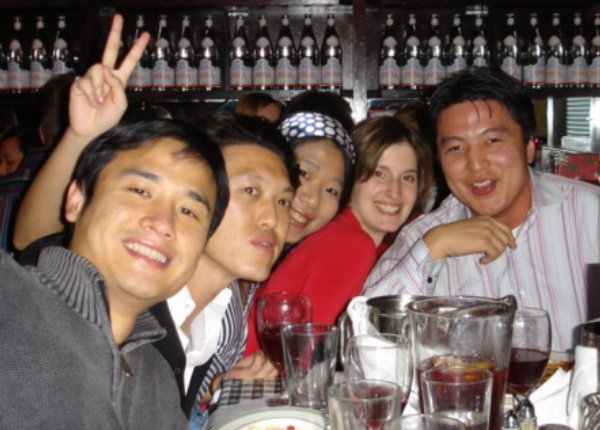
The ancient saying goes "Grant me the courage to change the things I can change, the serenity to accept the things I cannot change, and the wisdom to know the difference." It is while seeking to change 'Your' world that you discover exactly what it is you can improve, and recognize what is beyond your Control or Influence. With this clarity of understanding, you can then rally their courage to take on achievable objectives that improve 'Your' world.
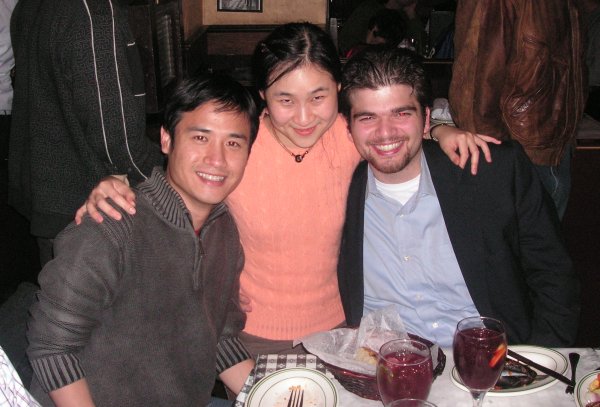
Summing this all up...
It would be erroneous to apply this scale for purposes of judging the success or motivations of individuals. Rather, this is intended for personal use, in charting what you as an individual want to experience throughout your life, and what you need in order to accomplish that.
In choosing what you want to do with your life, assuming you want to 'Improve' the world, you have two shared means through which you can create this improvement. One is through developing 'Control' and the other is through developing 'Influence'. The synergy of your combined Control and Influence becomes the 'Power' through which you can Improve the world. The scope and depth of your interaction with people and things is the scope of "Your" world. it is the scope of where and how you may exert your Power.
While carrying ambitions to 'Improve' the world in some yet undefined way, it will be most effective to first consider the nature of 'Your' world. From understanding 'Your' own world, you can then search for natural extensions into 'The' world at large, finding where your life has natural avenues of Influence and Control. This helps to give scope and definition to where and how you can create the greatest 'Improvement' (recognizing that "greatest Improvement" and "greatest Impact" are not necessarily the same).
By focusing on improvement that naturally extends from 'Your' world into 'The' world, you gain several intrinsic advantages. First, you have a clearly defined starting point for your ambitions; you can find concrete objectives to focus your energy, both in the near and long term. You will find opportunities and create improvements in all aspects of your life, personal, professional, and recreational. Next, you overcome the error of misdirected intentions that accidentally harm the world of somebody unassociated with you. Finally, you will naturally find greater fulfillment in your objectives, not matter how far your reach into 'The' world at large. You can improve the world with a reach as far as your improvements allow you to go, finding improvements of a nature and value you couldn't have anticipated earlier in your life.

|
December 22, 2006 F #
Happy Stinking Holidays

(An inopportune ending of an MIT hallway.)
I'm sick of hearing everybody say "Happy Holidays." Back in Los Angeles lots of random people would say Merry Christmas. People at work would say Merry Christmas. People in Colorado have always said Merry Christmas. Here in Boston, you'd think Christmas was some illicit forbidden holiday. People cheerfully says Happy Holidays, but I think I've only heard two people, THIS WHOLE DECEMBER, say Merry Christmas (without me saying it to them first). Even when I first say Merry Christmas, the large majority reply back "Happy [Stinking] Holidays."
What in the world is wrong with saying "Merry Christmas?" I love Christmas season, I love saying Merry Christmas, and I love it when people say Merry Christmas to me. I don't care if they're Christian or not. I don't care if they celebrate Christmas or not. We can say Happy Hanukkah and nobody gets offended. Why do they have to get offended at Christmas?
It's time that America starts appreciating cultural diversity. We appreciate and respect the cultures of other nations (even when we're invading that nation). What's wrong with appreciating and respecting our own culture? Christmas is part of American Culture!!! Forcing other people to become Christian is not part of American culture, but celebrating Christmas certainly is.
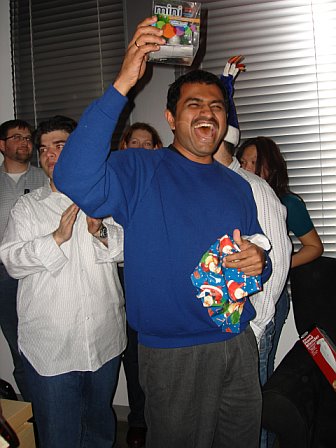
(Competetive gift exchange with the LFM crew)
Several international students at MIT have had a good time looking forward to their first Christmas! They look forward to celebrating an American holiday, and even send out Merry Christmas emails! If foreigners can have fun with Christmas, why can't locals?
We live in America! We celebrate Christmas here in America! We've celebrated Christmas in America since it's inception! (except the puritans, of course). CHRISTMAS IS IN AMERICAN CULTRE!!! Let's get off this cowardly deprecating pretense of Happy [Stinking] Holidays and get back to saying Merry Christmas!
Go Jet Blue!!!
I'm sitting at the Boston airport waiting for Denver to allow us to take off. Jet Blue just rolled their drink and snack carts up the jet way, set up a table, and are giving drinks and snacks to everyone waiting for us to take off!!! That's the best customer service I've ever seen from an airline!!!
|
December 27, 2006 W #
"'Manly', Mom. That's the key word. 'Manly.' That means you can't come. Now I'm going to go wrap myself a rock."
|
contact
This is a personal web page. Things
expressed here do not represent the position of my employer.
|